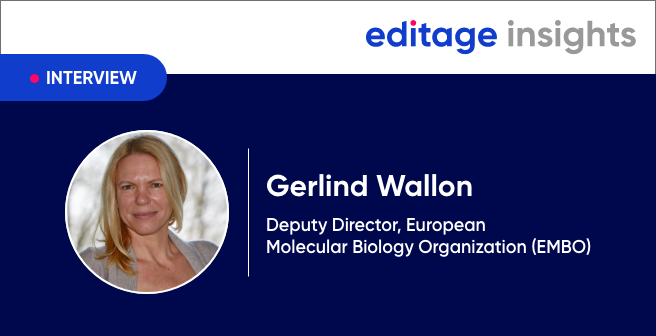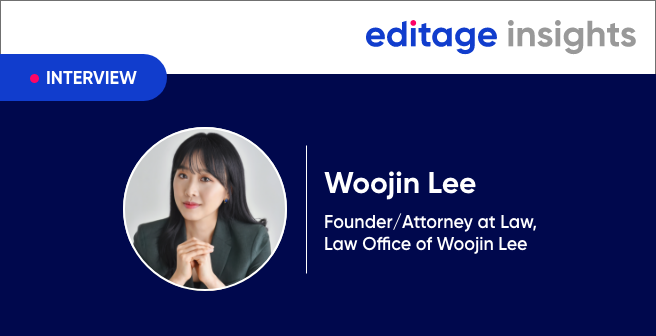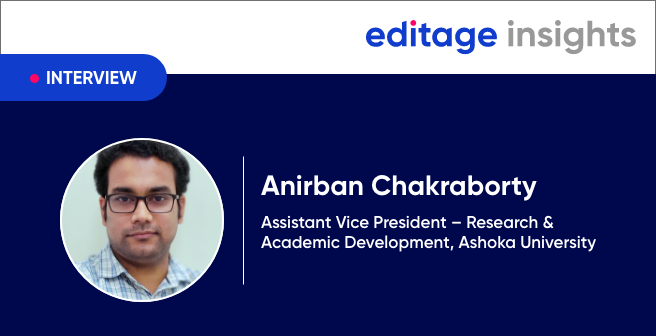Dr. Hyungsun Kim: Don’t become a victim of the publish-or-perish culture

Dr. Hyungsun Kim, Professor at the School of Materials Engineering, Inha University, Korea, has 20 years of experience teaching academic writing and best publication practices to Asian researchers and journal editors. Following a PhD from Imperial College London (1989), Dr. Kim worked as a Research Fellow at the University of Oxford and as Professor in the Materials Science and Metallurgical Engineering Department at Sunchon National University, Korea. Dr. Kim has been an active academic and publishing professional. In addition to sitting on the editorial boards of several academic journals, Dr. Kim serves as an adviser for the Content Selection Board for SCOPUS in Korea. He is the newest President of the Korean Council of Science Editors (KSCE) and is a member of several professional societies including the Council of Asian Science Editors (CASE, of which he is the Secretary General), and the National Academy of Engineering of Korea. He has also authored four books: Special Topics for Scientific Ethics (2011), How to Write Correctly Scientific Papers (2010), Engineering Communications (2009, in Korean), and Make Only 10% Change to Your Papers (2003, in Korean). Dr. Kim is passionate about promoting good publication practices among researchers and editors. He has conducted several seminars and workshops for graduate students, researchers, and editors in Korea, Japan, China, and Russia. During these sessions he covered a range of topics including tips for writing academic articles, creating a publication strategy, and registering journals in global indexing databases.
Korea is emerging as a major contributor to the global scientific research landscape and this was a great opportunity to connect with Dr. Kim to hear his views about academic publishing and research in Korea. As the President of KCSE, Dr. Kim talks about the aims and activities of the council. He also reveals the main barriers to the development of Korean research and elaborates the areas in which Korean researchers need training and support. Based on his own experience, Dr. Kim shares some useful advice for researchers in Asia, where the race to publish and the impact factor chase dominate the research and publishing landscape.
Could you give us a brief overview of the Korean Council of Science Editors (KCSE)? What are its mission and objectives?
Founded in 2011, the Korean Council of Science Editors (KCSE) has 323 academic journals (including 261 academic organizations and institutions), 54 individual members, and 20 special corporate members. The goal of KCSE is to promote the quality of scientific journals published in Korea and contribute to scientific advancement by exchanging information and knowledge about scientific publishing and holding discussions around editing scholarly literature.
The activities we primarily focus on are:
- Education and training (professional development programs, e.g., manuscript writing, reviewing, and editing)
- Publication ethics (planning and execution of publication ethics)
- External affairs (building a network on local and international editors and associations)
- Sharing information and publications (providing our members valuable information on the development of scientific publishing through newsletters and science editing services).
So far, our efforts have been successful, and I am proud to say that South Korea is one of the two countries in the world (the other being the US) to have an editorial council consisting of local editors.
What are your duties as the President of KCSE?
The duties of the President of KCSE are to share latest news and information about academic journals and publishing and to manage 7 committees (Planning and Administration, Education and Training, Publication Ethics, Information and Publication, Manuscript Editing, External Affairs, and Awards). The overall aim of KCSE is to improve the quality of scientific journals published in Korea. As the President, I represent the KSCE officially at all internal and external events and purposes.
What kind of support is KCSE expecting from editors, the government, and other institutions in Korea?
Currently, KCSE is actively promoting a few projects:
- Facilitating the exchange of information, resources, and cooperation among editors of science journals in Korea
- Developing a set of common generic guidelines for improving the quality of science journals in Korea
- Educating Korean academics about best practices in manuscript writing, reviewing, and editing
- Acquainting people with local and international indexing services and databases of academic and scientific journals
- Improving the understanding of publication ethics by sharing relevant resources with and imparting training to academics and publishing professionals in Korea
In order to carry out these projects effectively, it’s important to acquire the latest information constantly from similar international groups such as the Council of Science Editors, European Association of Science Editors, CrossRef, and Committee on Publication Ethics. Chairs of KCSE are also required to participate in diverse international academic conferences and educational programs and invite professional instructors from major international institutions to conduct certified educational programs.
All this requires a lot of hard work and resources. Projects of KCSE are supported by the annual membership fees of members and the registration fees paid by workshop and seminar attendees. But in order to be able to achieve all its goals efficiently, KSCE relies greatly on financial support from Korean government. We also request local journal editors to attend our informative programs regularly and to share their experience on publication. Their inputs will also help us consolidate the indexing databases of international journals and ensure better utilization of our capabilities.
Korea is known to face stiff competition from Japan and China in terms of scientific research and output. What barriers does Korea need to overcome to stay ahead in the global scientific research arena?
Korea needs to overcome several barriers to make advancements in global scientific research. First, we need to overcome the language barrier. It is essential for Korean researchers to achieve bi-lingual proficiency in Korean and English. The financial support and conditions that could support long-term creative research also need to improve, because currently, the lack of financial support and a good research environment are a barrier. Korea needs to invest in creative and fundamental research by setting short-term research results. This will provide a boost to the overall quality of scientific research in the country.
Lack of knowledge about best publication practices is another barrier to scientific development. Korean scientists need a lot training about best writing and publishing practices. They also need training on performing and writing original research. Statements made in academic manuscripts must be logically derived from facts. Nevertheless, many researchers are unable to distinguish between “facts” and “opinions” from the results of their research. So I would say that there are several barriers to be overcome to ensure that the Korean research community makes great strides at the international level.
Over the years, you have been on both sides of the journal publishing, as an author and editor. Based on your experience, what aspects of journal publishing do Korean researchers struggle with most? Do you have any words of advice for them?
“Publish or perish” has been the driving factor as well as pain point of Korean research. Most Korean researchers are victims of a competitive publishing system where the focus is on publishing a greater number of articles in high impact factor (IF) journals within a short time period. This is because the academic grading system is closely tied to publication output. In addition, most researchers want to publish their articles in SCI-indexed journals, and researchers in the pure/applied sciences are keen on publishing articles in prestigious journals like Nature and Science. However, according to a current research report (Nature 535, 210–211, 2016), 74.8% of Nature articles were cited below its IF of 38.1. Similarly, 75.5% of Science papers (IF=34.7) were cited fewer than 35 times in two years. Also according to a report (International Comparative Performance of the UK Research Base, 2013) in the UK, about 32% of published papers are not cited at all.
It is important for Korean researchers to ensure that instead of blindly trying to publish a manuscript in high-IF journals or trying to publish as many papers as they can, they need to consider the quality of their manuscripts as well as publish their research with the aim of communicating their research to a wide audience. That is my advice to Korean researchers – don’t become a victim of the publish-or-perish culture.
Unethical publication practices are also becoming increasingly common globally. To what extent do Korean academics know about unethical publication practices? If there is a gap in understanding, how can this gap be bridged?
I believe that given the competitive research scenario, everyone involved in research and publishing is aware of unethical publishing practices and the consequences of indulging in them. And given the increasing awareness of the fact that researchers are likely to unintentionally flout ethical guidelines when under pressure, many institutions and journals are taking steps to educate authors about the need and ways to publish ethically. This applies to Korean research, too. Each university in Korea has instituted “Research Ethics Guidelines”. Each Korean journal also follows “Publishing Ethics Guidelines” that are made available to authors. In 2014, the Korean government published “Guidelines for Ensuring Best Ethical Practices in Research” in order to prevent research misconduct by sharing the fundamental principles of ethical research and by discussing the roles and responsibilities of researchers and universities in ensuring that ethical research and publishing practices are followed. In 2015, KCSE created and distributed a “Scientific Research and Publication Ethics Manual”. This manual covers a wide range of research and publication ethics related aspects that should be taken into account in the fields of science and engineering.
Today, almost every university and research institute has a Research Integrity Committee and an Institutional Review Board to ensure that the best and ethical research publication practices are followed. However, plagiarism (including self-plagiarism and authorship related misconduct) still occur in some labs. This indicates the need to train and educate researchers about publication ethics related issues on an ongoing basis. Duplication of data also emerged as a major issue recently. The best way to identify plagiarism is to use a plagiarism detection software or a service that offers plagiarism checks. A number of institutions use CopyKiller, a plagiarism check software. Turnitin is another software that is being used globally. In Korea, the issue is that many institutions/publishers can only use software that has been integrated with their system. But I think that when authors submit their manuscripts, we should be able to run a plagiarism check using local and international software.
What are the main goals of KCSE in the coming year? How do you see the organization shaping up over the next few years?
2017 promises to be a busy year for KCSE. One of the plans of KCSE in 2017 is to conduct 10 workshops and forums for journal and manuscript editors. Journals are evolving digitally and editors are trying to internationalize journals. Local journal and manuscript editors should be aware of advanced systems of submission, review, editing, and distribution as well as about open access trends and policies. Korean researchers and publishing professionals also need to improve their understanding of authorship. The workshops and forums organized by KCSE will focus on providing essential information, knowledge, and training about these topics.
Thank you for your time and for the great perspectives, Dr. Kim! We hope KCSE has a great year ahead!



